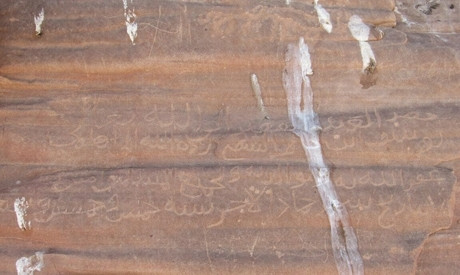'No God except Allah': Medieval grafitti by ancient pilgrims discovered in Egyptian cave
The engravings contain religious messages and will be restored by experts.

On the walls of an Egyptian cave, on the Red Sea coastline, archaeologists have discovered Arabic letters engraved in the stone and dating back to medieval times.
The discovery, announced by Egypt's Ministry of Antiquities, occurred during an archaeological survey documenting archaeological sites located in an area known as the Golden Triangle, close to the Red Sea.
The cave which contains these 'graffiti' was once a place for pilgrims and merchants to rest and shelter from the hot weather.
Sometime between the 13<sup>th and 14<sup>th centuries, some of these individuals made these markings in Arabic on the walls. No inscriptions like these ones had ever been discovered to date
While some of the engravings have already vanished due to erosion, some religious inscriptions can still be clearly distinguished.
As such, these inscriptions may shed light on the identity of the pilgrims that sheltered in the cave in Medieval times, and could help archaeologists learn more about their beliefs.
Mohamed Tuni, an archaeologist at Egypt's Red Sea Islamic and Coptic Antiquities Department explained that two messages had so far been clearly identified. The first one reads "No God except Allah", while the second says: "God has returned back the poor slave Youssef Bin Hatem Alshati to his family in 755 of Hegira. May God forgive him and his parents and all the Muslims. Amen."
At the moment, the Ministry of Antiquities is studying whether it can grant the cave special protection, putting it on the official list of protected heritage sites in Egypt.
This would allow experts to preserve it and to restore the ancient texts engraved on the walls, to put the cave where the text engraved on Egypt antiquities list in an attempt to protect it as well as restoring the texts.
© Copyright IBTimes 2024. All rights reserved.























